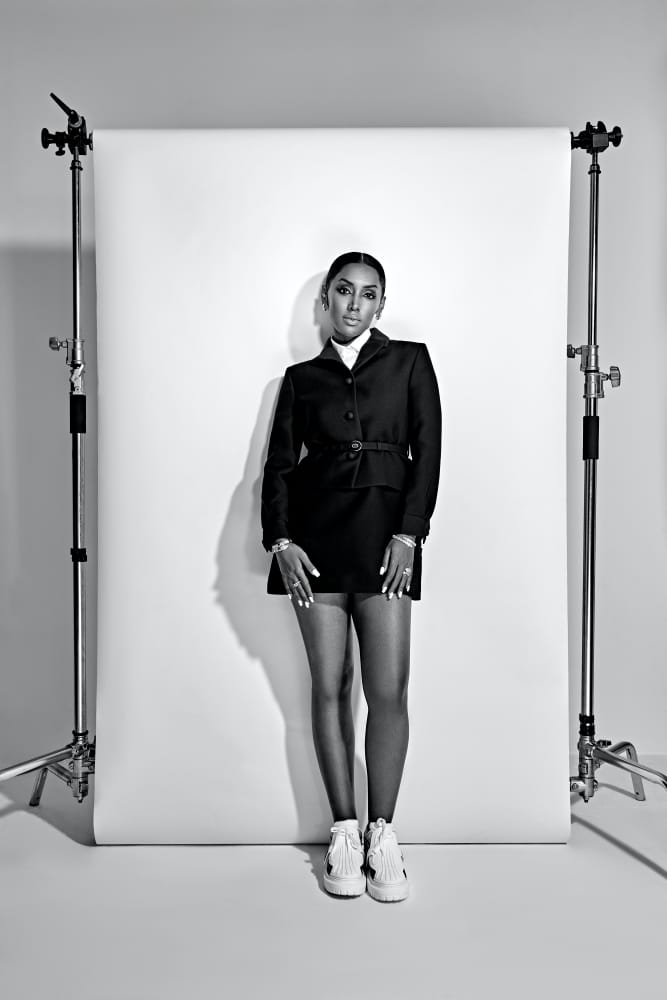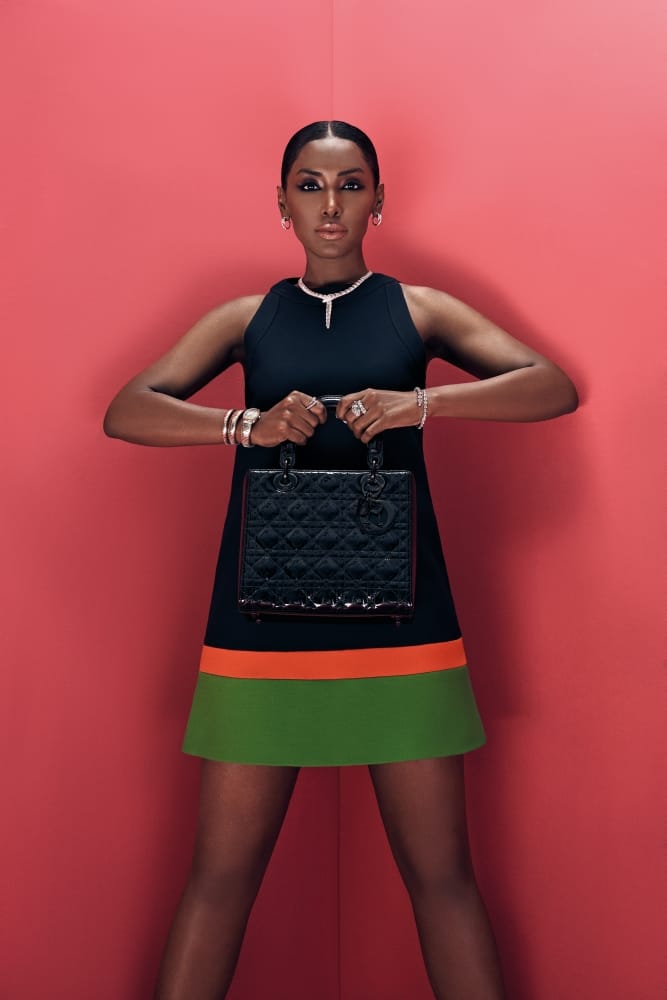Half-Malay, half-Sudanese model Iman Mohamed Osman has a conversation with BAZAAR about the painful trauma of colourism she experienced since childhood and the long journey it took to reach self-acceptance.
PHOTOGRAPHED BY EDMUND LEE STYLING AND CONCEPT BY AI LIM
TEXT BY ABDUL AZIZ DRAIM

Top; dress; jacket; belt; and shoes, all from DIOR. Earrings; ring; bracelet; all from BULGARI Serpenti Collection.
Iman welcomed the experience, allowing her to share a more inclusive definition of beauty to a public that has long idolised fair skin as the only measure of beauty. Unfortunately, online trolls thought otherwise, and their vitriol sparked a fire inside of Iman.
“If I myself as a mixed Sudanese, mixed Malay, mixed Indian (on my mother’s side) have to go through this, how would other Malaysian girls feel? Those who are of dark skin? That’s when I finally realise that, sure, I can take this but it isn’t about just me anymore. It’s about all those other girls out there, about being a victim of my childhood. I’m done. That book is closed. I’m going to stand up for those girls who have it bad, just because they have darker skin.”
“So I stood up. It’s not like I had a big platform with many followers, but I needed to respond. It was rather out of character because my friends will tell you that I’m not one to create drama, that I’m quiet… but that was me back then. That’s why at a rather late stage in my life, at 28, I decided to say, ‘No more!’ No more to being bullied, no more letting people tell me what to do with myself. I have to be me and speak up and stand up for myself—and for all those other girls out there. I don’t ever want them to go through what I did.”
“If I myself as a mixed Sudanese, mixed Malay, mixed Indian have to go through this, how would other Malaysian girls feel? Those who are of dark skin?”

Dress; and bag, both from DIOR. Earrings; necklace; ring; bracelet; and watch, all from BULGARI Serpenti Collection.
The relevance of her newfound consciousness hit closer to home too. Iman opens up, “I have a niece who’s eight years old and she comes up to me and asks, ‘Why am I not fair like my mum?’ I used to grow up with that experience so I feel for her.”
That said, Iman knows how challenging it is to navigate the terrain towards self-acceptance. “Young girls would message telling me how their parents don’t accept them, how they get made fun of, being told they’ll never be able to get a man, to wear sunblock so they won’t turn as black as charcoal… I’ve read so many comments, heard so many stories from girls who aren’t even as dark-skinned as I am. They want to be accepted like the women they see on TV and in advertisements, to be like what society wants them to be.”
“And it’s not easy for me to tell these girls that it’s okay to embrace who you are and not listen to people, because it wasn’t an easy journey for me,” Iman admits. “The feeling of alienation is real. Having to feel even when you’re with a group of friends that you don’t belong there. Hearing them say something as trivial as ‘Oh, I’ve been in the sun too long, I’m so black!’ Do they realise the insinuations they’re making?”
MAKE-UP Khir Khalid HAIR Juno Ko & Ckay Liow
FLORAL DESIGNER Dianthus Goh
FLORAL DESIGNER ASSISTANTS Adam Kiss & Jean Galvadores
STYLIST’S ASSISTANT Zhi Ying & Alisha Azuddin
PHOTOGRAPHER’S ASSISTANT Christine Chang
ASSOCIATE ART DIRECTOR Khairani Ramli PRODUCTION Edmund Lee
abd. aziz draim
Currently the creative director of BAZAAR, Aziz has been helming architecture, fashion, and design magazines for two decades now, and he’s been doing it in two languages to boot. Citing Rei Kawakubo, Vivienne Westwood and Jean Paul Gaultier as his earliest fashion gurus, this amateur poet believes that nobody deserves an ugly pair of shoes.



